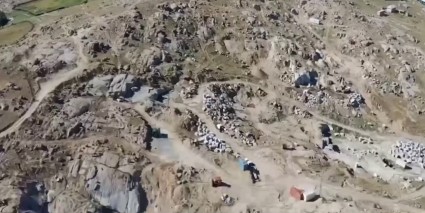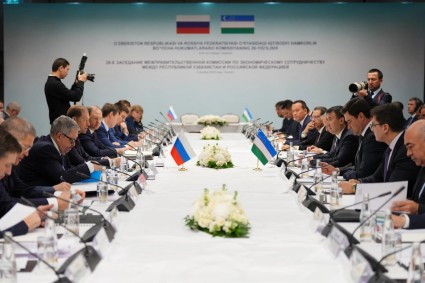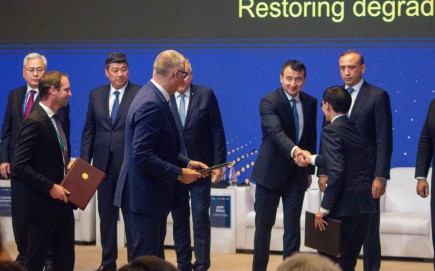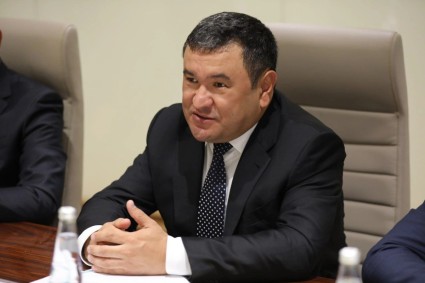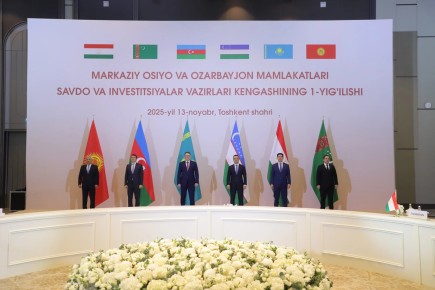The Pakistani Prime Minister Imran Khan on Wednesday assured Uzbekistan of complete facilitation in access to Pakistani ports.
Mr Khan held out the assurance during a meeting with Uzbekistan’s Foreign Minister Dr Abdulaziz Kamilov, who was on a two-day visit to Pakistan.
Mr Khan, according to a statement issued by the Prime Minister Office after the meeting, said that Pakistan’s Karachi and Gwadar ports could become “the gateway to the landlocked Central Asia as Pakistan provided the Central Asian Republics the shortest route to international seas”.
Pakistan, he said, would facilitate Uzbekistan’s access to its ports.
Uzbekistan, which currently relies on Iranian seaport of Bandar Abbas for external trade, is exploring other options and is prioritising Pakistani ports because of short distance, being more economical and due to some political considerations.
Uzbekistan is working with Pakistan on the development of two options — the first is the Trans-Afghan railway project while the second is the road route via China.
Pakistan, Afghanistan and Uzbekistan had in Tashkent in February signed a roadmap for the construction of almost 600km of Mazar-i-Sharif-Kabul-Peshawar railway line. The project, which is expected to take five years for completion at an estimated cost of $4.8 billion, enjoys the backing of international lending agencies including the World Bank.
Mr Khan welcomed the proposed Trans-Afghan railway project and underscored Pakistan’s commitment to support all efforts for the earliest realisation of this important connectivity project.
Meanwhile, Uzbekistan has been desirous of acceding to the Quadrilateral Traffic in Transit Agreement (QTTA), an agreement between China, Pakistan, Kyrgyzstan and Kazakhstan to facilitate transit traffic and trade. Pakistan has been supporting Uzbekistan in this regard also.
The road project under this agreement would provide an alternative link between Pakistan and Central Asia while bypassing Afghanistan through the Karakoram Highway which connects Gilgit-Baltistan to China’s Xinjiang region and further on to Central Asia.
Dr Kamilov’s visit was also focused on regional connectivity and he extended invitations to Mr Khan and Foreign Minister Shah Mahmood Qureshi for participation in Central Asia-South Asia Connectivity Conference in Tashkent in July.
Mr Khan told Dr Kamilov that he looked forward to visiting Uzbekistan and that his government wanted enhanced trade and regional connectivity.
DELEGATION-LEVEL MEETING
During the delegation-level talks, Foreign Minister Shah Mahmood Qureshi and his Uzbek counterpart Dr Kamilov exchanged views on enhancement of economic cooperation, mutual support in international fora, regional connectivity and tourism promotion.
The two foreign ministers, the Foreign Office said, expressed satisfaction at the progress achieved in advancing the rail connectivity between the two countries and agreed on early completion of the Trans-Afghan railway project.
Mr Qureshi called for establishing direct air connectivity between the two countries to boost up trade and tourism. He also stressed the need for quick facilitation of visas for businessmen and tourists.
Visit to GHQ
Dr Kamilov later visited the General Headquarters for a meeting with Army Chief Gen Qamar Bajwa. Director General of ISI Lt Gen Faiz Hameed also attended the meeting.
“Matters of mutual interest, overall regional situation including the Afghan Peace Process and bilateral cooperation in various fields were discussed. Both reiterated the desire to further enhance bilateral relations including efforts for peace and security in the region,” the ISPR said in a statement.



